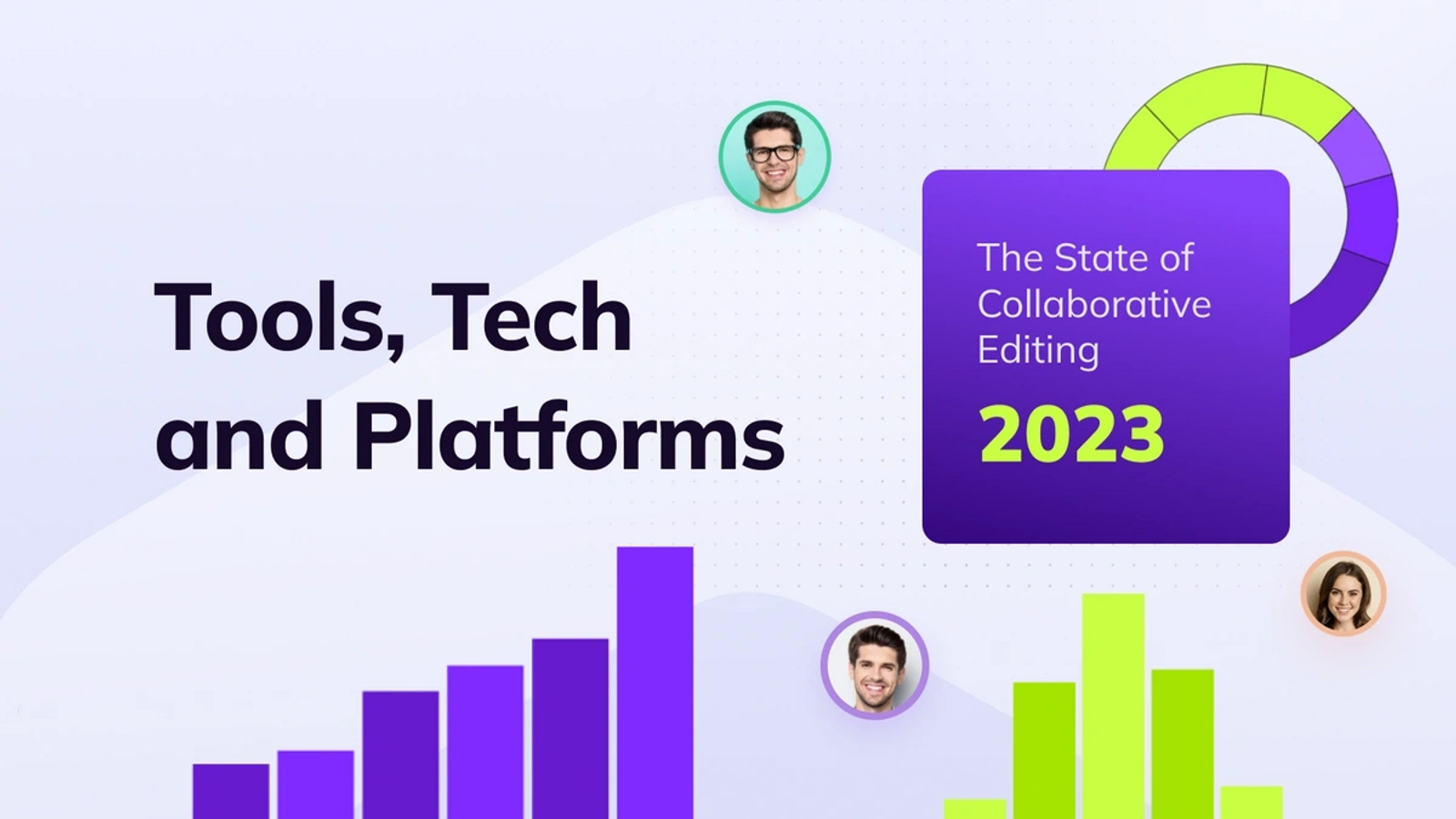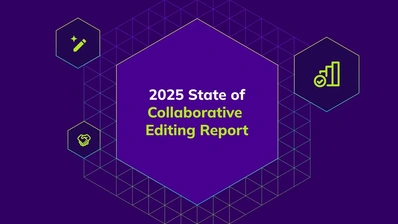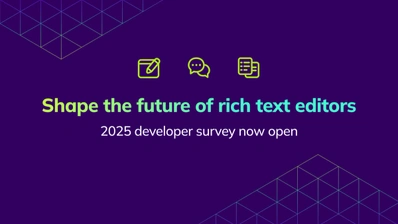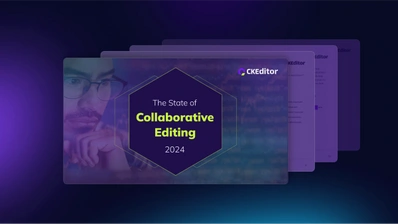Popular collaboration platforms and technology in 2023

Our 2023 State of Collaborative Editing Report revealed a lot about the latest collaboration trends and the outlook for the future of collaboration technology. But what about the platforms and frameworks that power all those collaborative solutions? Read on to explore the latest insights on popular programming languages, rich text editors and more.
There are a multitude of collaboration platforms today, from interactive whiteboards and word processors to project management software and content management systems. Each one relies on different approaches and tools to help people collaborate better.
From the end-user’s point of view, a developer’s choice to use a front-end framework like React or Vue isn’t usually noticeable, but that single decision can make a big difference to the platform as a whole.
So, to get a sense of what’s going on behind the scenes, we asked developers about their preferred technologies, including the programming languages, frameworks, and rich text editors they use the most. Finding out which tools are the most popular provides a clue to what the collaboration platforms of tomorrow might look like under the hood.
Get more insights
Collaboration platforms rely on a diverse range of tools and technology
If there’s one overarching theme to these results it’s diversity. While some tools are clearly more popular than most, the sheer range of technologies used by developers shows there’s more than one way to get the job done. Not only that, developers seem to be ready and willing to move to new platforms if their current one no longer meets their needs.
Which rich text editor do you usually use?
When it comes to which platforms people use for collaboration, the rich text editor they use is key. 58% of people use TinyMCE and CKEditor, making them the clear favorites. Of those, 26% choose CKEditor, suggesting a possible preference for an editor with distinctive collaboration features.
After that, custom-built rich text editors are the third most popular solution. But it’s not all about popularity. The wide variety of other editors, each with different features and use cases, shows that specialization is one of the most important factors for people in choosing their editing tools.
Thinking of switching rich text editors in the next two years?
It seems change is on the horizon for many, with a full 50% of people considering changing their rich text editor in the next 24 months – and a further 21% are undecided. Two years may be a long time in some industries, but this goes to show people are keeping their eyes open for solutions that better suit their needs.
Considering 75% of people are planning to add collaboration tools to their apps in the next two years, perhaps this result isn’t so surprising after all. Clearly, the demand for better collaboration platforms isn’t going away, and developers are realizing the way to provide a comprehensive solution is to bring collaboration technology right into the editor itself.
What’s the programming language you use the most?
Drilling down further, the programming languages being used to build collaboration platforms can make a big difference to functionality – not to mention ease of integration. PHP and Javascript are the most popular languages, with one-third of people using them regularly. But classics like C++, Java, and C# are still popular, too.
What front-end technologies do you use?
Front-end framework integrations are a key decision point for many in choosing a rich text editor. Unsurprisingly, HTML/CSS/JS, Bootstrap, and JQuery are the top three most commonly used frameworks. But they’re joined by a wide variety of other front-end technologies, showing that the platforms of tomorrow are relying on a diverse range of frameworks, depending on their use case.
Get more insights
More on the State of Collaborative Editing survey
All these insights come from our annual survey of tech professionals around the world who work with rich text editors. The goal is to learn more about the importance of collaborative features, and the collaboration platforms and technology of the future.
For more key information from the report, see our summaries on current collaboration trends and the future of collaboration.
To get involved in next year’s survey, sign up to our newsletter below, and you’ll be the first to know when it goes live.
In the meantime, you can read the entire 2023 State of Collaborative Editing report for free.


